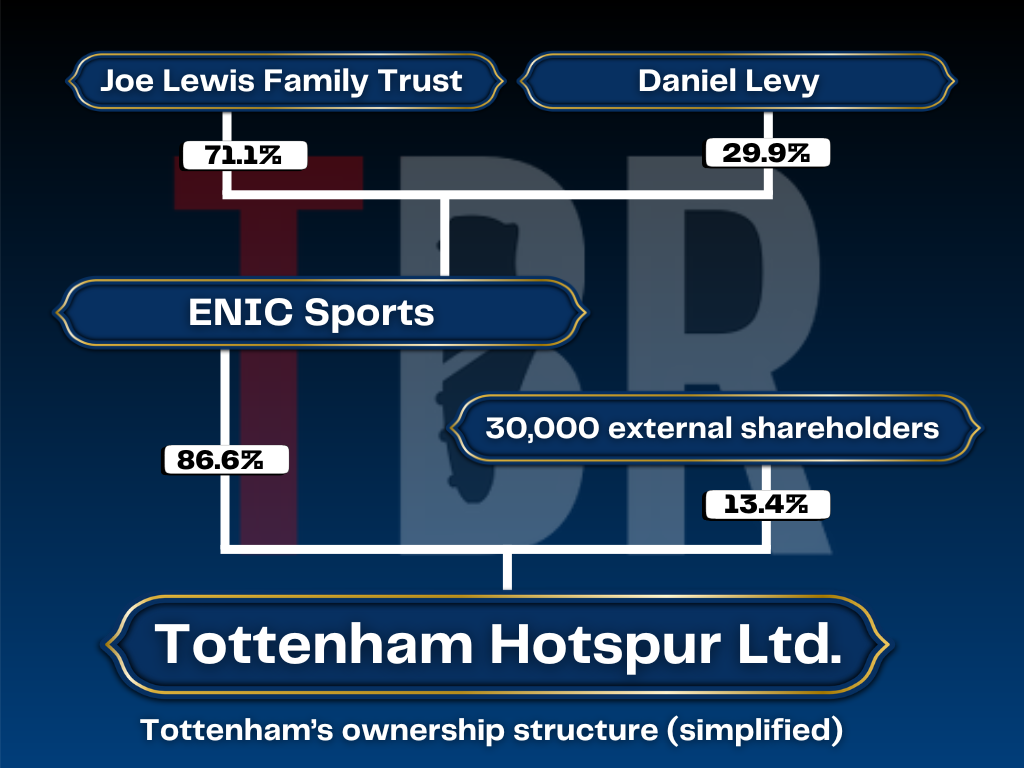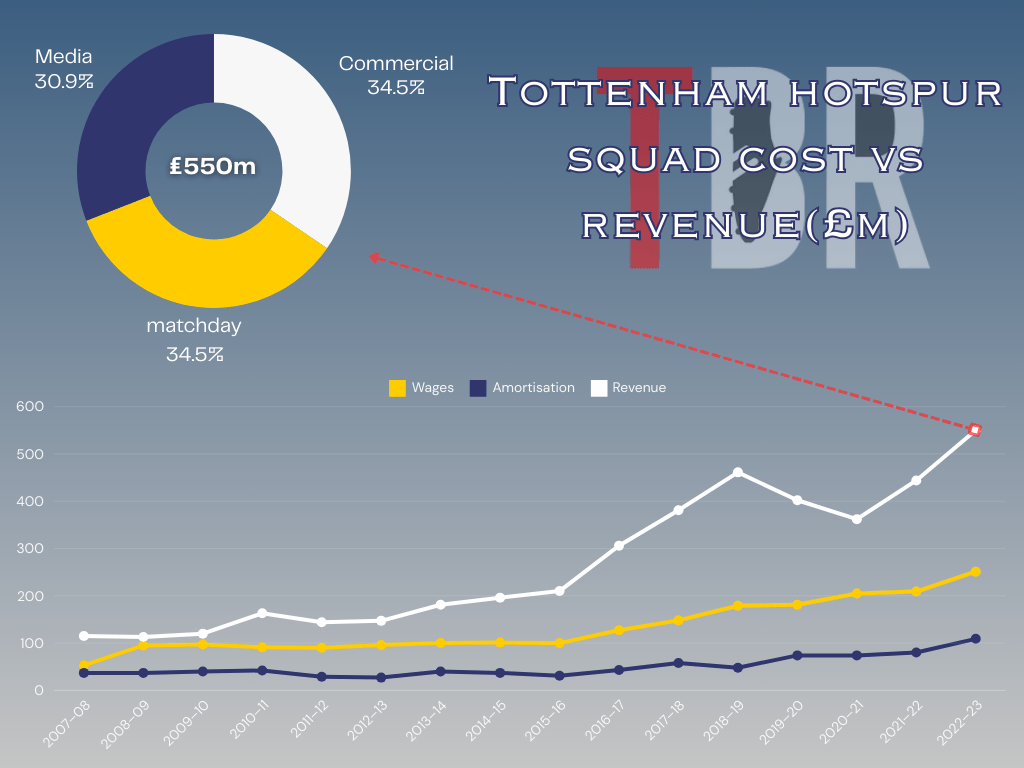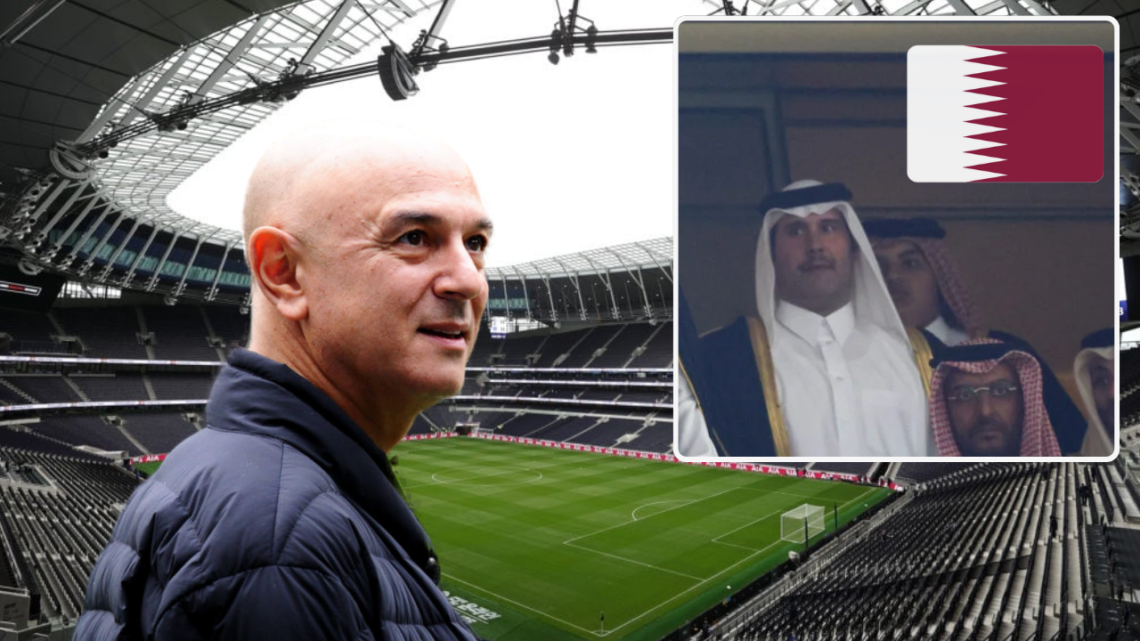Tottenham Hotspur has recently found themselves under scrutiny for their poor form on the pitch, but they remain a prime target for investment in global football. Daniel Levy, the club’s chairman, is reportedly seeking a new minority partner and has enlisted Rothschild bank to explore fresh investment opportunities.
This development comes amidst persistent questions about the club’s long-term ambitions under Levy and ENIC, the majority shareholders.
One potential investor drawing attention is Amanda Staveley, a prominent figure in the football world known for brokering high-profile deals.
Staveley’s consortium reportedly includes Middle Eastern investors, though not royals akin to those backing Manchester City or Newcastle United. Her interest, coupled with Tottenham’s storied history and modern infrastructure, makes the North London club an appealing proposition.
As Tottenham grapples with just one win in their last eight matches, frustrations among fans and players have grown. Key figures, such as Cristian Romero, have openly criticized the club’s lack of investment and questioned its culture.

Despite these remarks, manager Ange Postecoglou indicated there would be no disciplinary action against Romero, focusing instead on the team’s need to improve results.
Tottenham’s openness to investment has long been an open secret in football finance circles. Both minority deals and full takeovers are reportedly on the table. Liberty Media, owners of Formula One, and MSP Sports Capital are among the entities previously linked to the club.
However, one name consistently stands out—Sheikh Jassim bin Hamad Al Thani. The Qatari royal and banker was known for his £5 billion bid to purchase Manchester United, which ultimately fell through in favor of Sir Jim Ratcliffe’s minority deal.
Recent reports suggest Sheikh Jassim has abandoned his pursuit of Manchester United, though sources close to him indicate he remains a fan and could revisit the opportunity if it arises in the future.
This diminishes any immediate likelihood of his interest shifting to Tottenham. While this may dash hopes of a significant influx of funds from Qatari investors, Tottenham still holds potential for other partnerships, such as with Staveley’s group.
If Staveley were to acquire a stake in Tottenham, it’s unlikely she would use personal capital. Similar to her Newcastle acquisition, she would likely secure funding from other consortium members.

Any cash injection would primarily focus on infrastructure projects, such as the ongoing hotel development at the Tottenham Hotspur Stadium, as well as investments in the men’s and women’s teams.
However, there would be no obligation for Levy or ENIC to reinvest these funds directly into the club unless it involved issuing new shares rather than transferring existing ones.
This approach suggests that even a 10-20% minority investment would not immediately lead to significant increases in transfer spending.
For Tottenham to maintain their status among the Premier League’s elite and secure consistent Champions League qualifications, more substantial financial commitment would be necessary. Without a competitive edge in the transfer market, they risk falling further behind their rivals in the so-called “Big Six.”
Tottenham’s current strategy under Levy and ENIC revolves around building a robust commercial brand that maximizes capital appreciation. Their state-of-the-art stadium and global fanbase position them well to weather short-term challenges. However, sustained success on the pitch remains critical to maintaining the club’s value and appeal to potential investors.
As the search for a minority partner continues, it is clear that Tottenham faces a pivotal moment in their history. With strategic investment, they could reignite their ambitions and strengthen their position among football’s elite.
However, without decisive action, they risk stagnation, both competitively and financially. The months ahead will determine whether Tottenham can strike the balance between business acumen and sporting success to shape a brighter future.

